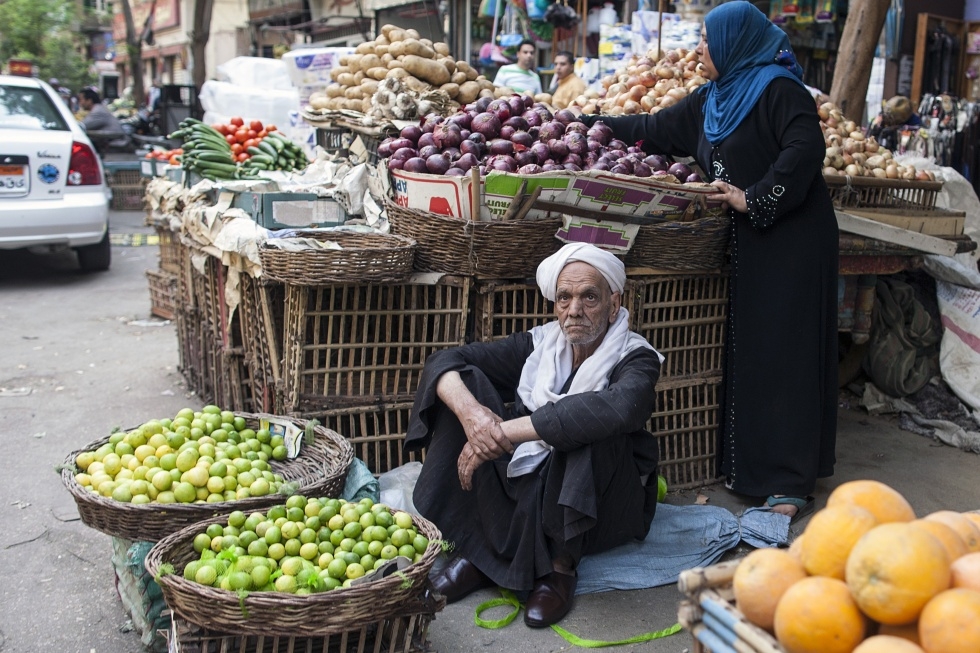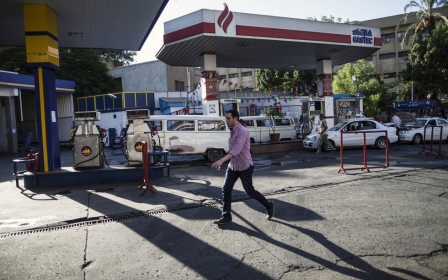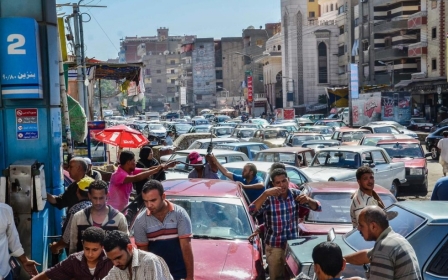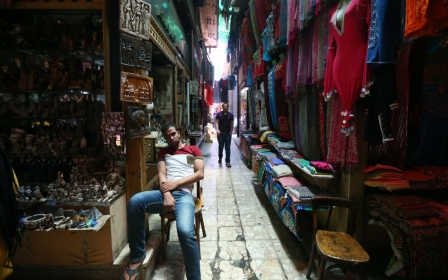Egypt seeks UAE investment after adopting austerity budget

Three Egyptian government ministers flew to Abu Dhabi on Sunday in an unannounced three-day visit aimed at encouraging Emirati investment in Egypt, a statement by the government said.
Egypt is seeking financial assistance to bridge a budget deficit amounting to a whopping $18 billion during the next fiscal year, which will start in August, according to statements by the finance minister.
The visit comes on the heels of substantial rises in fuel and electricity prices as part of a long term plan which the government says is aimed at lifting subsidies to relieve a sprawling budget deficit.
However, government cuts have caused public discontent, especially since the new budget will include an increase of 28% for the military and judiciary, while slashing subsidies for medicine and children's dairy products by half.
"The ministers of Petroleum, Finance and Investment will promote investment opportunities during their visit to the United Arab Emirates," said a press statement by Finance Minister Qadri Damien, released after the ministers had departed.
Cairo Airport authorities have not been informed that Petroleum Minister Sherif Ismail, Finance Minister Hani Qadri and Investment Minister Ashraf Salman were scheduled to leave Cairo on Sunday, a source from the airport told Anadolu Agency.
The source also said the three ministers did not speak to reporters before boarding the plane Sunday afternoon.
The Egyptian government seeks to mend a funding gap estimated between 17 and 19 billion dollars for the fiscal year 2014/15, according to earlier statements by Damien.
The UAE has been one of Egypt's strongest backers since the army's ouster of elected president Mohamed Morsi on July 3 last year.
Egypt has received $21.3 billion in total in Arab aid since Morsi's ouster, according to a senior Finance Ministry official had told AA earlier.
Price hike in commodities
Prices in Cairo's vegetables markets have already seen a rise.
"The prices of all commodities had risen only hours after the fuel raise decision was applied," Um Mariam, a vegetables seller from the market, told Anadolu Agency.
"Nobody will be able to put food on the table for his/her children, if these prices stay intact," she added.
Um Mariam says the prices of foodstuffs increased between 30 and 100 percent after the fuel price raise was applied.
She adds that almost half of the vegetables she brought for sale in the market in the past used to rot because of stagnation, noting that the new fuel price raise would bring even more recession to her business.
"The current situation is like slow death for a large number of people," Um Mariam said.
Her views were shared by a nearby butcher, Saeed.
"I have to raise the price after the latest fuel price raise," Saeed told AA.
"Customers who bought two kilos of beef in the past, buy one now only," Saeed said. "With the new raise, nobody will buy anything," he added.
Mohamed Sukkar, who arrived in the market together with his young son to buy food for the family, said he cannot buy with 100 pounds (around $15) the same amounts of food he used to buy with the same amount of money in the past.
'Sisi promised reform in his campaign'
Prime Minister Ibrahim Mahlab said on Saturday that the decision by his government to raise fuel prices would save the state treasury up to 51 billion Egyptian pounds (around $7.14 billion).
Mahlab's attributed the raise, which is unprecedented since 2008, to a yawning budget deficit and a desire by the government to initiate economic and financial reforms to address this deficit, while acknowledging that Egypt's poverty rate has risen to 26.3 percent.
Mehleb argued that that the decision was built on an agreement between the people and President Abdel Fattah al-Sisi.
“Didn’t we agree on reform?” Mehleb asked. “Sisi promised reform in his campaign.”
Sisi defended on Sunday the decisions to increase fuel prices as necessary to ease Egypt’s debt, adding that the country is in a state of war.
Meanwhile, Hundreds of taxi and minibus drivers staged protests Saturday in several Egyptian provinces against the government's move to raise fuel prices.
Groups of taxi and minibus drivers declared an open-ended strike in a number of transport stations in the provinces of Gharbiya, Suez and Assiut to call for increasing transportation fees, eyewitnesses said.
Arrest and tax increases on tobacco and alcohol
Drivers in Cairo and the canal city of Ismailia blocked a main road to demand higher transportation fees.
One man was reportedly arrested in Cairo on Sunday for protesting against fuel price hikes.
Witnesses said Mohamed Nassar, a member of the April 6 Youth Movement, was holding a placard reading "You promised not to lift subsidies; you turned out to be a liar, Mr President."
On Wednesday, Sisi raised sales taxes to 50 percent on cigarettes, 150 percent on wine and 200 percent on beer.
Although former President Mohamed Morsi had attempted in in December 2012 to pass similar tax increases on tobacco and alcohol, he backed down following public opposition.
Meanwhile, Sisi signalled adopting property and value added taxes in the future.
New MEE newsletter: Jerusalem Dispatch
Sign up to get the latest insights and analysis on Israel-Palestine, alongside Turkey Unpacked and other MEE newsletters
Middle East Eye delivers independent and unrivalled coverage and analysis of the Middle East, North Africa and beyond. To learn more about republishing this content and the associated fees, please fill out this form. More about MEE can be found here.




